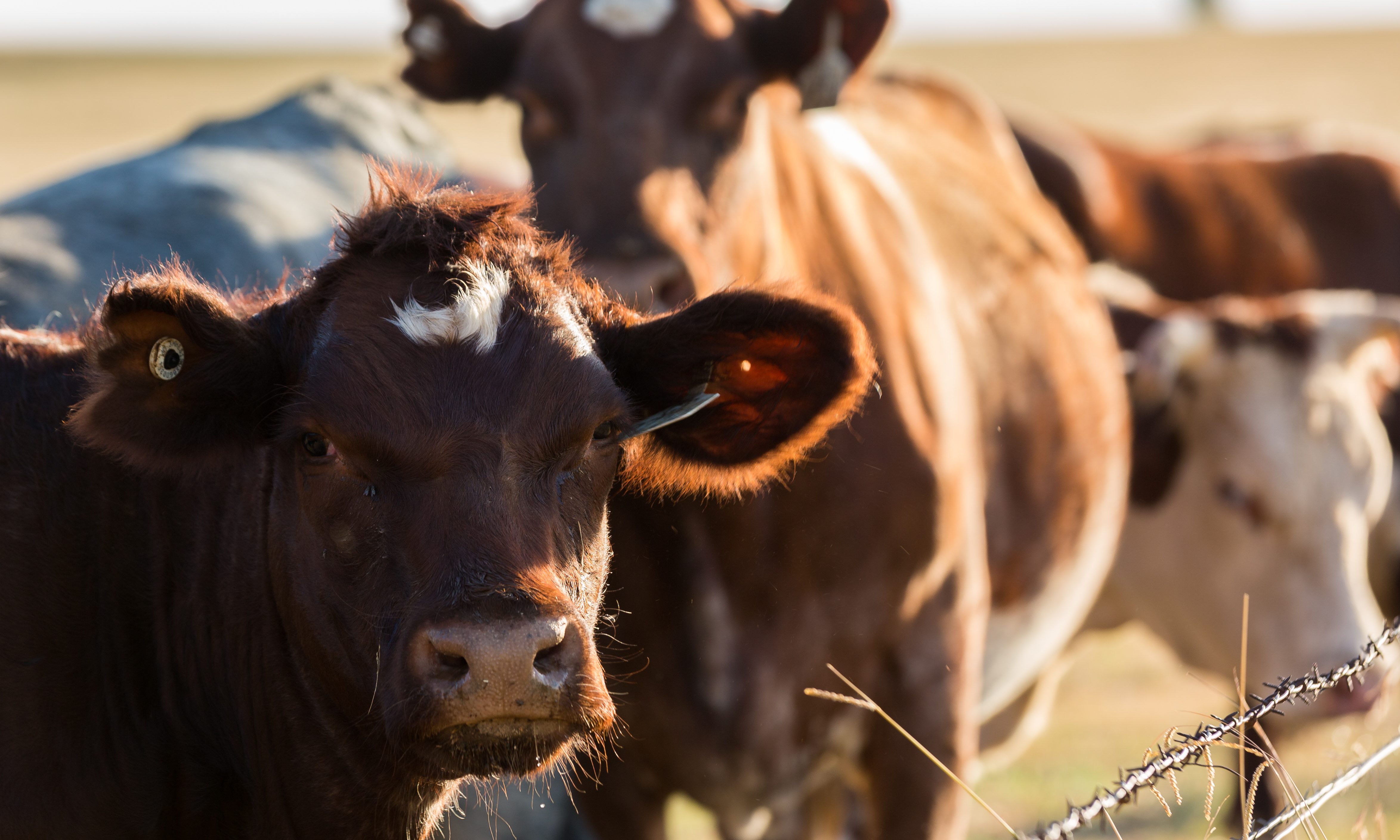U.S. Senator Doug Jones, D-Alabama, and a bipartisan group of senators asked President Donald Trump to do away with limits on financial aid for livestock, dairy and specialty crop producers hit hard by the COVID-19 crisis.
Jones and the other senators in a letter to Trump wrote that caps in the Coronavirus Food Assistance Program (CFAP) mean that some family-owned farms and ranches suffering because of the pandemic will see less assistance.
The lawmakers wrote that they were thankful for the help CFAP provides, but that “we are concerned about the $125,000 per commodity and $250,000 per individual or entity payment limits as it relates to assistance for the livestock, dairy and specialty crop sectors.”
“This limitation would severely restrict the program’s effectiveness for many family-owned farms and ranches across the nation. We strongly urge you to eliminate payment limits for livestock, dairy and specialty crop producers before the final CFAP program details are announced,” the letter reads.
The COVID-19 crisis has caused unprecedented damage to the livestock, dairy and specialty crop industries, the senators wrote in the letter. Economists estimate that the cattle industry has lost $13 billion due to the pandemic, and the impact on the pork industry has been estimated at $5 billion. Dairies, fruit, nut and vegetable producers have also suffered many more billions in damages, the letter reads.
In a letter to Secretary of Agriculture Sonny Perdue on Thursday, the National Cattlemen’s Beef Association cautioned against the payment caps.
“NCBA recognizes the tremendous challenge of providing assistance to multiple segments of agriculture, particularly when funding is limited, and the need is great across all sectors,” the letter reads. “However, payment limits bite hardest when commodity prices are lowest. It is imperative that cattle producers, regardless of herd size or business structure, be empowered to recuperate all losses in order to maintain consistent food production levels after this situation is resolved.”
The full letter from Jones and the other senators is below:
Dear President Trump,
Thank you for your announcement of the Coronavirus Food Assistance Program (CFAP). For many family agricultural operations, this support will mean they are able to stay in business and pass farms and ranches on to the next generation of producers in spite of these challenging times.
However, we are concerned about the $125,000 per commodity and $250,000 per individual or entity payment limits as it relates to assistance for the livestock, dairy and specialty crop sectors. This limitation would severely restrict the program’s effectiveness for many family-owned farms and ranches across the nation. We strongly urge you to eliminate payment limits for livestock, dairy and specialty crop producers before the final CFAP program details are announced.
The COVID-19 crisis has caused unprecedented damage to the livestock, dairy and specialty crop industries. Agricultural economists have estimated over $13 billion in harm to the cattle industry and $5 billion to the pork industry due to the pandemic, with many billions more in injury to dairies, fruit, nut, and vegetable producers, and the horticulture and floriculture industry. As is true for many other small businesses across the country, this financial harm comes through no fault of these farmers and ranchers, nor is it the result of typical market forces. As such, these relief payments should aim to indemnify as much loss as possible without restrictive payment limitations.
While some farmers and ranchers produce multiple commodities, and therefore will be eligible for up to the $250,000 total payment limit per individual or entity, many cattle, pork and dairy operations are solely invested in livestock. This common business practice within the cattle, pork and dairy industries of being invested in a single commodity means this payment limit structure will be even more severe for these producers compared to other commodities. Fruit and vegetable producers by comparison can have very high costs of production—strawberry producers can invest $30,000 an acre for example—and thus payment limits of this level are too restrictive to meaningfully address the losses many producers are facing.
It is critical for USDA to provide a level of support that is responsive to the disaster situation producers are currently facing. As you know, Congress approved $14 billion in the CARES Act to partially replenish the Commodity Credit Corporation and we believe that a significant portion of these dollars should be used to ensure that needs are met, even if the payments must be paid in tranches.
We appreciate the support you and Secretary Perdue have provided farmers and ranchers, and we look forward to working with you make certain agricultural producers receive the level of assistance necessary in response to COVID-19.




















































